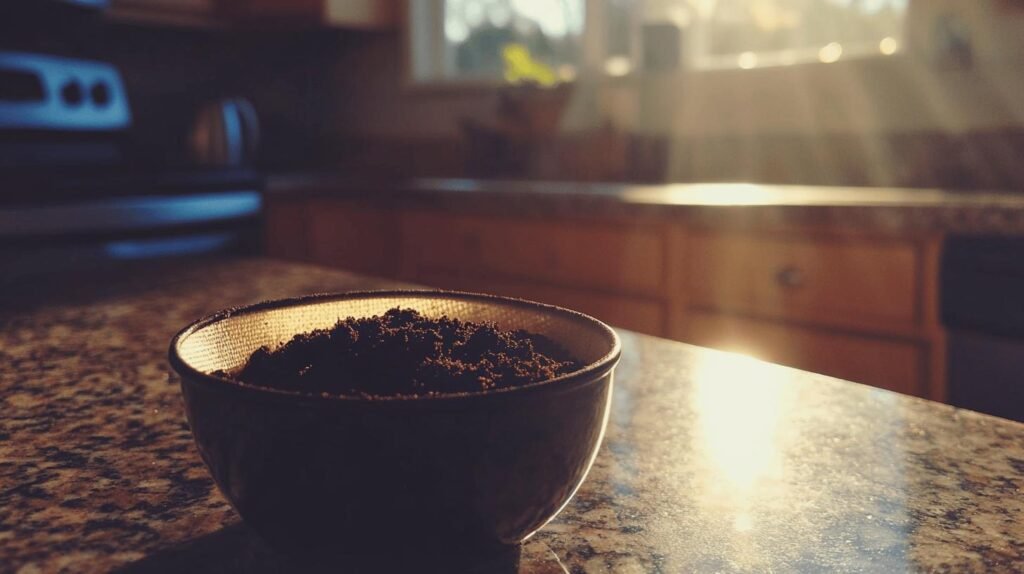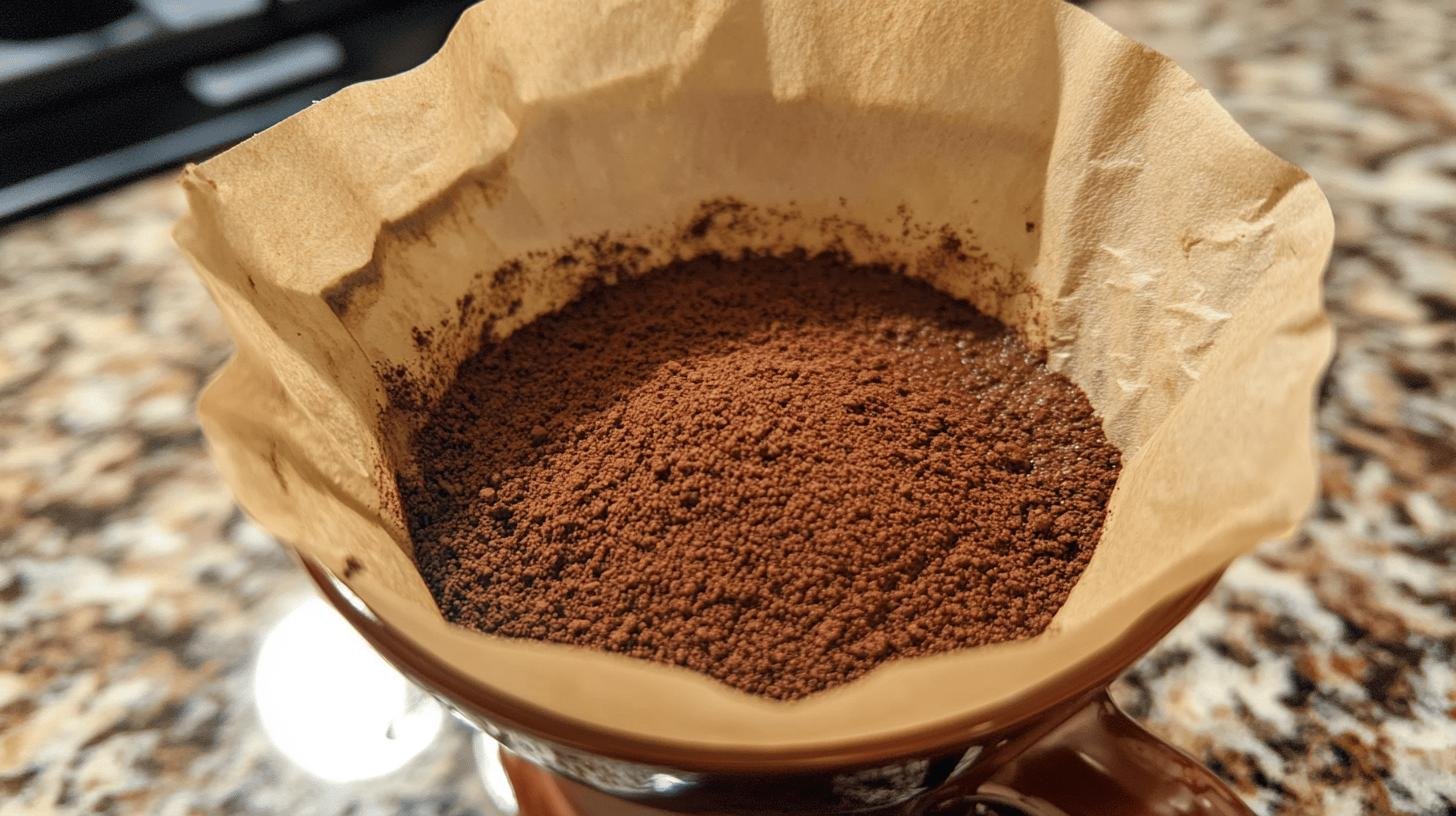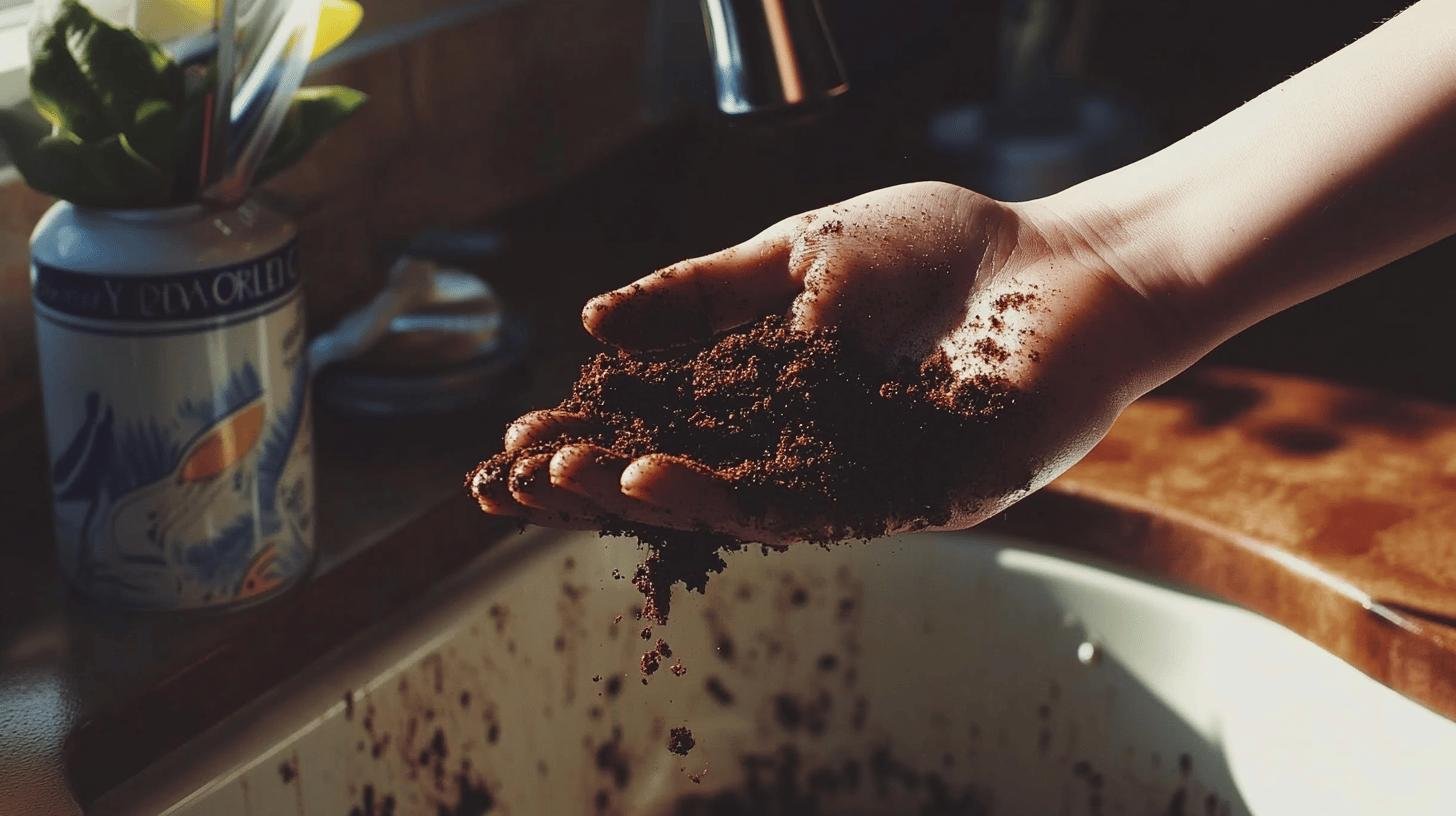
Emerging Approaches Redefining Craft-Focused Customer Experiences
Craft-focused small businesses have always relied on care, precision, and sourcing to stand out. What’s changing now is how those values are shown, not just

TL;DR:
Alternative uses for used coffee grounds:
Ever wondered, “Can you use coffee grounds twice?” While it might seem like a money-saving trick, using coffee grounds more than once isn’t the best idea. This article will explain why reusing coffee grounds can lead to a less tasty cup and potential health risks. We’ll also share some cool ways to reuse your coffee grounds that don’t involve drinking them.
Can you use coffee grounds twice for brewing? Yes, but it’s generally not recommended. Reusing coffee grounds for a second cup results in a weaker, less flavorful brew. The first brew extracts most of the desirable flavors, caffeine, and antioxidants. This leaves the second brew lacking in richness and depth. When you reuse the grounds, the coffee tends to be watery and can even taste more bitter due to over-extraction of some compounds.
The extraction process plays a crucial role in brewing coffee. When hot water is added to coffee grounds, it causes them to bloom. This releases carbon dioxide and unlocks a richer flavor profile. This blooming process only occurs effectively during the first brew. The initial extraction pulls out the majority of the oils, flavors, and caffeine, making subsequent brews significantly less satisfying. The second brew will lack complexity and the robust characteristics that make coffee enjoyable.
According to the National Coffee Association, reusing coffee grounds is discouraged due to the risk of bacterial and fungal contamination. If the grounds are reused even an hour later, the moisture retained in them creates a breeding ground for bacteria and molds. This poses potential health risks. While technically feasible, reusing coffee grounds for brewing isn’t advisable for those who prioritize taste and health.
| Brew Attempt | Flavor Strength | Caffeine Content |
|---|---|---|
| First Brew | High | High |
| Second Brew | Weak | Low |

Reusing coffee grounds leads to a weaker and more bitter flavor. The initial extraction pulls out most desirable flavors, leaving behind compounds that can cause bitterness. The second use coffee taste often lacks the complexity and richness found in the first brew. This diminished quality impacts the overall coffee experience, making it less enjoyable for those who appreciate a strong and flavorful cup.
The second brew also contains significantly less caffeine. During the first brewing process, most of the caffeine is extracted from the grounds. As a result, the second brew has reduced caffeine content. This makes it less effective for those who rely on their coffee for a caffeine boost. For those who prefer a robust and invigorating coffee experience, reusing coffee grounds is not recommended.
Repurposing used coffee grounds offers significant environmental benefits. By using them in various household applications, you can contribute to sustainability efforts and reduce waste.
One effective use is composting. Coffee grounds act as a rich source of nitrogen, enhancing the compost’s nutrient profile. Additionally, coffee grounds serve as a natural deodorizer. They effectively absorb odors in refrigerators, closets, and even cars. This eco-friendly approach not only minimizes waste but promotes a greener lifestyle.
In skincare, coffee grounds can be transformed into an exfoliating scrub. Their coarse texture helps remove dead skin cells, leaving your skin feeling smooth and rejuvenated. The antioxidants in coffee grounds also provide anti-inflammatory benefits. This makes it an excellent cost-effective alternative to commercial exfoliants. Applying this natural scrub can enhance skin vibrancy and promote a healthy glow without the need for expensive skincare products.
In gardening, coffee grounds are beneficial by creating acidic soil—ideal for plants such as azaleas, blueberries, and roses. Mixing coffee grounds with planting soil can improve soil structure and provide essential nutrients for these acid-loving plants. Moreover, they act as a natural fertilizer, slowly releasing nutrients over time and promoting healthier plant growth. By integrating used coffee grounds into your gardening routine, you can enhance plant health and support sustainable gardening practices.

Used coffee grounds are incredibly versatile and can be repurposed for a variety of practical applications around the home. This not only helps reduce waste but provides cost-effective solutions for everyday tasks. From skincare to gardening, the potential uses for coffee grounds are numerous and beneficial.
Repurposing coffee grounds as an exfoliating scrub is popular. The coarse texture makes it an excellent natural exfoliant, helping to remove dead skin cells and rejuvenate the skin. The antioxidants in coffee grounds provide anti-inflammatory benefits, making them a great alternative to commercial skincare products.
Coffee grounds can also act as an effective insect repellent. By sprinkling them around plants, you can deter slugs and snails from causing damage to your garden. As a lawn fertilizer, used coffee grounds are equally beneficial. Their nutrients are broken down slowly over time, allowing your grass to absorb them and promoting stronger, healthier growth.
Moreover, coffee grounds can serve as a natural deodorizer. Placing them in refrigerators, closets, or cars can help absorb unwanted odors, keeping these spaces fresh and clean. Another practical application is using them as a natural abrasive cleaner. Their gritty texture is perfect for scrubbing away stubborn stains and grime.
Are there any health risks associated with reusing coffee grounds? The short answer is no significant health risks are directly linked to reusing coffee grounds for brewing. However, the National Coffee Association advises against this practice. The first brew extracts most desirable flavors and compounds, leaving the grounds more susceptible to bacterial and fungal contamination. If reused even an hour later, the moist environment of the coffee grounds can become a breeding ground for harmful microorganisms.
The general health implications of reusing coffee grounds center around potential contamination and diminished brew quality. While the risk of illness from reused grounds is low, it’s essential to exercise caution. The risk of ingesting bacteria or mold increases as time passes. Thus, it’s crucial to avoid reusing coffee grounds that have been sitting out. For those who prioritize both flavor and safety, it’s best to use fresh grounds for each brew.
So, can you use coffee grounds twice? Technically, yes, but it’s not recommended. You’ll end up with weak, bitter coffee that lacks the kick you’re after. Instead of trying to squeeze out a second cup, consider using your old grounds for composting, as a natural cleaner, or in your garden. By finding new uses for your used grounds, you’ll get more value without compromising your coffee experience. Embrace the richness of each cup and enjoy the full experience coffee grounds can offer.
While it’s possible, using coffee grounds twice results in weak, bitter coffee with less caffeine.
Reusing coffee grounds can lead to bacterial growth, especially if they sit out for a while.
The second brew will be much weaker and might taste more bitter than the first.
There aren’t many benefits to brewing with used grounds, but they have many other useful applications.
Used grounds can be great for composting, cleaning, and gardening.

Craft-focused small businesses have always relied on care, precision, and sourcing to stand out. What’s changing now is how those values are shown, not just

How can brands create a more balanced and memorable customer experience by blending artisanal product quality with thoughtful everyday rituals that keep people coming back?

Independent coffee shops have always been about more than caffeine—they’re hubs of creativity, connection, and care. As café culture continues to evolve, new trends are

Introduction Independent cafes win when they feel like the neighborhood’s living room and operate with the discipline of a great kitchen. Below is a quick

Discover how top specialty coffee brands create lasting loyalty through storytelling, sourcing, and community connection. Real tips from 6 industry experts.

Discover the ultimate showdown between two beloved coffee brewing methods: the French press and Chemex. Explore how each technique caters to distinct palates, with the French press delivering bold flavors and the Chemex presenting a bright, clean taste.

Unlock the secrets to brewing the perfect cup of coffee with our comprehensive guide on using a coffee scale. Discover how precise measurements enhance flavor and consistency while eliminating bitterness.

Discover how water temperature plays a vital role in brewing the perfect cup of coffee. This article delves into the ideal temperature range of 195°F to 205°F for optimal flavor extraction, enhancing the enjoyment of high-quality beans.

Discover the world of curated specialty coffee bundles, perfect for enthusiasts seeking quality and craftsmanship. This article explores the benefits of ethically sourced, small-batch beans from brands like Equipoise Coffee, offering diverse flavor profiles that elevate your brewing experience.